"Romeo and Juliet" and the Old Religion: Hidden Alchemy Shakespeare
The Old Gods Die Slowly If At All
A friend sent me an article called “Romeo and Juliet In A Nutshell” by Joseph Pearce for Crisis Magazine, a publication associated with the Catholic Church, and he asked my opinion. Mr. Pearce got a few things right- that Romeo & Juliet is a play about lust, not romance or love, and it's about the inevitable punishment of that lust.
I was pleased that Mr. Pearce and I agreed on an observation which most of us miss, since Shakespeare was expert at hiding deeper meanings in the plays. In my reading of Romeo and Juliet, I uncover a sinister scenario: incessant, violent, highly sexualized pagan and Gnostic and alchemical symbolism in a typically dense Shakespearean formula, that once seen reveals the death of Romeo and Juliet to be an ancient ritual once practiced openly, called pharmakos, a form of human sacrifice, designed to bring peace to a community. More than mere hidden portrayal of a sacrifice, the play is theatrical pharmakos itself. The Tragedy Of Romeo And Juliet is a horror story in hiding.
Friar, a Roman Catholic priest, weds the 13 yr. old Juliet to Romeo, a boy of indeterminate age but about 17 or 18. Following Friar’s decision to marry them, many deaths ensue, though viewers and critics such as Mr. Pearce, give the Friar a pass. Was the Friar really well-intentioned? Or was the death of Romeo and Juliet part of a strategy to restore order? Friar does state that he hopes the marriage will bring peace to Verona. And that is exactly what happened, after all the killing. The play ends with old man Montague promising to raise Juliet Capulet as a statue of of pure gold, in a union of opposites, revealing Friar as social alchemist, the Nurse his assistant, Romeo, Juliet and Mercutio (Mercury) his materials for alchemical transmutation, the city of Verona his laboratory, and his magickal ‘working’ a success, as evidenced by the peace that comes to the city, which was the goal of the ancient ritual pharmakos. The dead Juliet now a statue of pure gold, in a ritual of alchemical rebirth.
This is a brief companion essay to my 3-hour podcast episode that goes through R&J scene by scene. This essay delivers the gist of what’s hiding in the play, but without most of the incriminating details from the text, some of which are quite shocking. For that you’ll have to listen to the podcast. This essay is the shortcut, with just enough examples to hopefully prove my case. Romance and doomed love are a masterful misdirection, even a ruse to hide a ritual practiced openly long ago, but a ritual that must remain hidden in the modern, Catholic Verona of the play. Remarkably, it also stays hidden from the audience watching the play.
Friar, alchemist sun worshipper, denizen of the crypt
Friar is in league with Nurse, Juliet’s longtime caregiver. They work together using Romeo as bait, using him to lure in the virgin Juliet so as to bury her alive as an ancient Vestal Virgin would have been for transgressing her vow of chastity. For the finalé, ‘Shakespeare’ triples the dark fun with three young people lying in a pool of blood in a crypt, in a scene any horror story would envy. Romeo and Juliet is actually a horror story. The evidence? It’s right there in the text of the play. Let’s have a look.
Act 1 Scene 1
Raunchy sexual slang and imagery linked to violence and death permeates the entire play almost non-stop. How romantic is that? For instance, Act I Scene I begins with two young members of the Capulet clan gleefully discussing rape, followed by their violent interaction with the Montague clan. This scenario continues throughout the play until the gruesome ending. Sex = violence = death = sex. It’s right there on the surface of the play. Still somehow, and astonishingly so, the play is thought romantic and appropriate for children. I’ll try to explain how that works below. The play is devious, underhanded and manipulative in the extreme, and no doubt bringing a hearty chuckle to those in the know.
Firstly, the dialogue needs to be read, as it flies by on stage or screen, and oftentimes in modern productions much of it is cut. The sun is referred to as a god eight times in the play, the first time in the first act, where the sun is called the “worshipped sun”. The sun is referenced 19 times overall, the moon 5 times, Diana, as goddess of the moon is mentioned twice. This insistent motif of the interplay of light and dark has been mentioned by many critics. Romeo and Juliet, by word and deed, choose the night and darkness. For them this does not bode well, and is the source of their punishment.
Friar, the pretend Catholic priest, even refers to the sun as god, which is a sure giveaway to the pagan alchemical Gnostic jumble that makes up the veiled subtext of the play. When we first meet Friar he calls the sun a “burning eye”, a nod to Mithraism, a religion that called the sun “Mithra’s eye”. Mithraism was a secret cult-religion practiced in old London and throughout the Roman Empire, by small groups of men in caves or caverns. Mithra was a sun god and the religion was associated with human sacrifice according to Walter Burkert, a leading scholar of the mystery cults. [see Burkert, Ancient Mystery Cults] In Freemasonry, highly influenced by Mithraism, the sun is a primary symbol, if not the primary symbol for every Masonic initiate. The famous Masonic “Eye of Providence” is itself a symbol of the sun. It’s on the back of the dollar bill ya’ll.
Masonic sun. The Burning Eye
Naturally Mr. Pearce and I part company regarding the character of Friar, the Catholic Priest.
Pearce states in his essay:
“However, he [Friar] is told by the Prince at the end of the play that “we still have known thee for a holy man”, a judgment which has been borne out, for the most part, by his actions.”
Really? FOR THE MOST PART? What “holy actions”? And what about those parts not so holy? In a macabré moment of comedy, Prince says this to an assembled crowd in a crypt that includes Friar, abut Friar being a ‘holy man’, as Juliet, Romeo and Paris lie in pools of blood nearby. Friar, closely watched, as we will see, has been only pretend holy, a poisonous spider in the cupboard, a satanist in the church.
The Friar’s actions are suspect, from his calling the sun “worshipped” at his introduction, to the bloody ending, when Friar shows up to the crypt carrying a lamp, a shovel and a crowbar where Juliet lies paralyzed from the potion he gave her. There is something clearly not right with this guy, but few pick up on it, either the characters in the play or the members of the audience watching. He has an unusually close relationship with young Romeo. Romeo calls Friar his “ghostly father”. Hmmmm. (The Arden Shakespeare says that “ghostly” means “spiritual”. OK) At the end of the play Friar is caught by the Watchman attempting to run away from the the three bloody corpses lying in the crypt, all three of whom Friar had recently been in close contact. The Prince, boss man of Verona, then shows up to summarily let Friar go. The ‘Prince’ character, by the way, is widely considered by critics to be a reference to Machiavelli and to a Machiavellian political philosophy. Surely this is so.
Also at the end the play, old man Montague, formerly Juliet Capulet's sworn enemy, promises to raise dead Juliet to be reborn as a stature of pure gold, as mentioned. Gold is the ultimate alchemical symbol of the sun, it is the coniunctio oppositorum, a Latin phrase referring to the goal of alchemy, a ‘union of opposites’, in this case the union of the Montagues and Capulets. Alchemical symbolism runs deep throughout the play as it does throughout much of Shakespeare. This is interesting because “the father of modern Science”, Francis Bacon, has been rumored for 400 years to be the true author of the Shakespeare plays, and Science came directly from Alchemy, which was a form of magic. Chemistry even takes it’s name from al-chemy, and early scientists were grave robbers, as Friar is made out to be by carrying those tools as required by the stage directions, and as pointed out by the Arden. The original alchemists were even were required to perform a sacrifice in order for their experiments to succeed. Thus the symbolism of sacrifice runs through the play.
A golden statue of Juliet in Verona today, under the famous balcony
It’s a Shakespeare play, so parallel symbolism is layered on top of layer on top of another layer. Such that it is suggested that Juliet is also a Vestal Virgin, one of the sacred Roman virgins who were tasked with tending an eternal flame symbolic of the health of ancient Rome. The punishment in Rome for a Vestal Virgin should she violated her vow of chastity was to be buried alive, which is exactly what happens to Juliet.
Romeo tells Juliet to “cast off her vestal livery”. Livery is an Elizabethan term meaning “distinctive dress worn by the members of a particular group”.
“Vestal livery” are ‘Vestments - liturgical garments’. Romeo would have her cast off her Vestal garment of chastity in this famous bit of dialogue (Act 2 Scene 2)
“But, soft! what light through yonder window breaks?
It is the east, and Juliet is the sun.
Arise, fair sun, and kill the envious moon,
Who is already sick and pale with grief,
That thou her maid art far more fair than she:
Be not her maid, since she is envious;
Her vestal livery is but sick and green
And none but fools do wear it; cast it off.”
Got alchemy? Juliet will soon do just as she is told and cast off her clothes, her vestal livery. Earlier in the play she had expressed a desire for chastity, a symbolic vow of purity that can be interpreted as her pledged as a maid to the moon goddess Diana and as well as Virgin for the flame of the pure light of the Eternal City, as well as a dutiful daughter to loving parents.
Mr. Pearce states: “It is clear, therefore, that Juliet is betrayed by those who should have saved her from her own immature folly.” This is the crux of the play, but Friar, the Catholic priest, not only doesn’t save her he orchestrates the betrayal, even encouraging her folly for his own ends. So it’s curious why Pearce would see Friar as mostly holy, and in this common reading of the play lies the fantastical subterfuge masterfully exhibited by Francis ShakesBacon, a man who mastered the arts of “dissimulation” as he terms it, in his famous book Essays. Friar has deftly maneuvered the situation with the help of Juliet’s Nurse. Friar’s alchemical working is a type of social engineering that required a rule breaker, a threat to the social order who must be punished for the good of the community. It’s the Old Religion.
Romeo’s first love Rosaline would have served equally well. Rosaline stayed pure, refusing Romeo’s constant entreaties for sex. Romeo even offered to pay Rosaline for sex! (Yep) I assume that Friar had a spy in the house of Rosaline as he did in the house of Capulet. Rosaline must be a reference to Bacon’s pure-hearted transhumanist Rosicrucians, and as such the name ‘Rosaline’ might serve as a signal to the initiates and adepts that Bacon stated for whom he wrote. (For that go here. Bacon is runmored to have started modern Freemasonry) The constant alchemical references and sun worship references are similar dog whistles to adepts. Trust me, I know how crazy this might sound. Stay with me.
Unlike the pharmakos of old in which all the citizens of a city willingly participated, in modern, Christian Verona the sacrificial process must be hidden, the citizens not to realize the part that they play in the ritual. The remarkable thing is that the process must remain hidden from the audience as well, in the Elizabethan era and even now. This is accomplished using specific dramatic techniques, some of which are discussed below, which are necessary for the play’s alchemy to be effective on the play’s audience.
Juliet calls herself a ‘sheath’ to Romeo’s ‘dagger’, using crude sexual slang as she kills herself
There is continual layering of the symbolism of horror with a substantial amount of it being vampire imagery. I know, more crazy! But listen to this: the first thing we learn about Romeo is that he stays out all night and comes home only as the sun is rising. He is said to be “augmenting the fresh morning dew with his tears”. Dew was a magickal substance used by medieval alchemists, and was gathered by alchemists at dawn. Friar appears to have turned Romeo into a dew gathering night creature. This hurrying home as the sun rises happens three times in a play where the action spans only four days and nights, with a dead body count of six. Romeo became a creature of the night while being close to Friar, to his mother and father’s despair. Romeo will soon turns Juliet into a creature of the night as well. It only takes one brief kiss at the dance, followed by another. Juliet will be forever changed. She almost instantly becomes enslaved to lust and a base materiality, which a sin in the Gnostic religion Friar practices.
In yet another layering of symbolism, we can also see the outlines of the story of Sophia, the Gnostic creator goddess, who, in one of the many Gnostic creation myths, after greatly debasing herself by lust in the materiality of her very own creation, is redeemed finally in the pure light of the next world. Juliet becomes the Gnostic goddess Sophia, the creator of our false world of Gnostic belief. The great Shakespearean scholar Professor Paul Cantor even delineates some of the Gnosticism in R&J.
Romeo is described by Nurse as by far the most handsome lad in all the land, quite a useful attribute to lure in a young virgin. Why are Romeo and Nurse so close to Friar? Nurse is always turning up at Friar’s. The Nurse’s prattle is sinister and almost always highly sexual. (see podcast episode for details) It’s all very odd but goes unnoticed by Nurse’s seeming battyness.
Romeo, and then Juliet, proclaim eloquent hymns to the night that grow increasingly elaborate.
Here’s one example: Act 3 scene 2, where Juliet is in her orchard the day after meeting Romeo. She is begging for night to come, using the symbolism of sex and death. Got romance? She’s 13. At this very moment Romeo is killing Tybalt who had jsut killed Mercutio (Mercury-Hermes, the god of fertility) .
Come, night; come, Romeo; come, thou day in night;
For thou wilt lie upon the wings of night
Whiter than new snow on a raven's back.
Come, gentle night, come, loving, black-brow'd night,
Give me my Romeo; and, when he shall die,
Take him and cut him out in little stars,
And he will make the face of heaven so fine
That all the world will be in love with night
And pay no worship to the garish sun.
Here Romeo literally becomes the night, even a sort of pagan god, as ‘little stars’ to make all the world be in love with night. Both Juliet and Romeo become consumed by darkness, meaning materiality and lust.
Friar must marry them in order to insure that Juliet will consummate her newly lustful state, making their one night of sex palatable to the Elizabethan audience, and to Juliet herself, who of course is still a good girl, if you will.
As for Juliet's sudden and determined lust, she was instantly changed by Romeo’s two kisses. Got vampiric? Then just a day after the first kiss, Juliet is a howling, lustful creature. A bit odd for a 13 yr. old girl. Well, she is married now, raging for Romeo to come to her bed in the “love performing night”. Romeo, the magician alchemist’s junior vampire assistant, transformed 13 yr. old chaste Juliet with one kiss and declarations of his love. OK, two kisses.
Vampire imagery in Act 3 Scene 5, after their one night together, an hour or so after Rmeo’s murder of Tybalt:
JULIET
O God, I have an ill-divining soul!
Methinks I see thee, now thou art below,
As one dead in the bottom of a tomb:
Either my eyesight fails, or thou look'st pale.
ROMEO
And trust me, love, in my eye so do you:
Dry sorrow drinks our blood. Adieu, adieu!
Dry sorrow drinks our blood! That’s romantic. Vampire tales existed in the time period of the writing of the play, in various forms. They are even a part of the Grail and Troubadour legends (linked to Gnosticism) like the Morte d’Arthur, Grail legends forming yet another layer of symbolism to back-drop the action of the play. Lancelot too, was punished for violating his vow of purity.
Juliet, consummating her sudden 13 yr old girl lust, can now be punished, even though married, for she has violated many symbolic vows of chastity: as a Vestal, as the misguided Gnostic Sophia, as a votress of chaste Diana, and by defying father and mother Capulet by marrying Romeo instead of Paris. She is a threat to the social order. She is just all wrong! Turning from the sun and the light, Juliet, like Lancelot, must die.
Nurse appears by her earlier speeches to have been grooming Juliet, even at one point encouraging Juliet to go to bed with Romeo, which she then actually enables, smuggling out a ladder to facilitate Romeo’s access to Juliet’s bedroom. That’s just plain weird but it fits the Nurse, as shown earlier by hints to be sinister and in cahoots with Friar. (see podcast episode) In classic Shakespearean antithesis Nurse at one point however, urges Juliet to forget about Romeo and to marry Paris- and for the audience this is yet another ‘adult betrayal’ of young Juliet, and becomes what the audience remembers most about Nurse. How could Nurse say such a thing? We all know Juliet really loves Romeo! It’s a brutal moment, part of a long, slow and very hard to watch torture of Juliet, which is just what the ancient pharmakos received before they died. They were tortured.
Juliet is fully alone now, except for Friar and Romeo. Nurse, who was Juliet’s ‘wet-nurse’, breast fed Juliet as an infant, began to betray Juliet long ago, evidenced by her strange early monologues that foreshadow evil, but she comes off as batty and silly, operating by stealth. Nurse and Friar both is practice Baconian dissimulation. Bacon, the statesman, spymaster, lawyer, poet and philosopher has a famous essay, wherein he advocates Big Lies: From OF SIMULATION AND DISSIMULATION by Francis Bacon:
“But if a Man cannot obtaine to that Judgment, then it is left to him, generally to be Close and a Dissembler.” ~ Francis Bacon
The Friar is then caught fleeing the crypt after he went to (supposedly) check on Juliet, whom he had buried alive with his herbal alchemy. Friar figures she would be soon awakening but the time doesn’t quite square, he’s actually a day early. What was he really up to, this herbal alchemist? At any rate he is carrying, as it says in the stage directions, a shovel, a crowbar and a lantern. This shows him as a potential grave robber, as were many early scientists, and fits with his ability to concoct super powerful potions as an alchemist/magician/vampiric. Is Friar connected to the creation of revenants?
He flees the crypt after meeting with the just having awoken Juliet, because he hears someone coming. This was the final and ultimate betrayal of Juliet, and by a Catholic priest. Romeo and Paris lie in pools of blood and Friar hauls ass. Juliet then kills herself, using extarodinarily crude sexual slang. She will be sheath to Romeo’s dagger. We can safely put away any notions of some that Shakespeare secretly advocated Catholicism! Friar is thenput under “great suspicion” by the Watchman because he was caught running away while carrying the crypt-opening and grave digging tools. Friar is then inexplicably and immediately pardoned on the spot by the Prince.
The Friar I believe to be a self-portrait of Baron Verulam, Sir Francis Bacon himself, master alchemist, master of cermeonies. Baron Verulam appears in many of his plays. In Macbeth he plays the Wierd Sisters. In The Tempest he is Prospero. In A Midsummer Night’s Dream he is Oberon. In As You Like It he plays Jaques who delivers the immortal Gnostic soliloquy “all the world’s a stage”, which happened to be the very motto of the Globe Theater,
Machiavellian Prince then says “we still have known thee for a holy man”. That was fast. The blood has not yet dried and Friar is already off the hook. Prince was in on the whole thing, as the unrest in Verona threatened his rule. The populace of Verona were sick and tired of the Montague/Capulet violence and the Prince needed to do something about it. Thus, pharmakos. The terrible tragedy overwhelms the rancor and violence pervading the city. Peace returns to a stunned and remorseful Verona.
Old man Montague promises old man Capulet and to the assembled crowd in the cemetery a statue of Juliet in pure gold, thus completing the ‘union of opposites’. Montague explicitly calls Juliet (and Romeo) a sacrifice in nearly the very last words of the play:
MONTAGUE
But I can give thee more:
For I will raise her statue in pure gold;
That while Verona by that name is known,
There shall no figure at such rate be set
As that of true and faithful Juliet.
CAPULET
As rich shall Romeo's by his lady's lie;
Poor sacrifices of our enmity!
The Prince mentions the sun one last time before the curtain drops.
PRINCE
A glooming peace this morning with it brings;
The sun, for sorrow, will not show his head:
Go hence, to have more talk of these sad things;
Some shall be pardon'd, and some punished:
For never was a story of more woe
Than this of Juliet and her Romeo.
It appears that the author of Romeo and Juliet enjoys mocking his audience by hiding such fantastical evil under the darkness of a surface tragedy about doomed ‘love’ and overbearing parents. Our natural human sympathy for romance and love makes it impossible for us cast a critical eye on the proceedings. We care, we sympathize too much. The Bard, master of simulation and dissimulation, throws the veil over the secret by using our sympathy itself as he mocks our sympathy.
ShakesBacon is above trivial romance. The Bard even mocks itself love by getting us to cheer for the sudden lust of a 13 yr. old girl and her predator. Romeo’s friend Mercutio even tells Romeo to “f**k her up the ass” (in slightly less obvious slang) as Romeo climbs over the orchard wall for the famous balcony scene. It’s all Gnostic inversion. The Bard regularly mocks romantic love. Few ever notice. Even René Girard, who specialized in a philosphy involving scapegoat sacrifice, wrote an entire book analyzing Shakespeare, totally misses it in Romeo and Juliet.
The Bard mastered using of our own emotions as a veil. It’s Machiavelli for the stage, and it has stayed hidden. The Wierd Sisters of Macbeth stay hidden from the characters in the play after brutalizing the mind of poor Macbeth with their ‘strange intelligence’. They are never confronted! Macbeth himself becomes another pharmakos after he manages to destroy Scotland, who then need the English army to save them. The audience is brought to the scene of each pharmakos, each sacrifice, which is then very graphically graphically portrayed. R&J’s pharmakos is inverted, as we sympathize with the victims, leaving us pacified and bewildered. In Macbeth, however, in keeping with tradition, we cheer, relieved at the death of the scapegoat and the hoisting of his head over the crowd. We are brutalized and pacified. The evil embodied by the Wierd Sisters (who have beards, beards that never make it to the stage or screen) is not confronted in the play after orchestrating the events. Everyone who knew of the existence of the Weird Sisters is dead. Covert murder proves another effective method for staying hidden.
There’s a lot more buried in the details of R&J which is why the deep analysis takes 3 hours. The play is bursting at the seams with artful disguises, and I’m sure I have not found them all.
There are similar hidden themes in other ‘Shakespeare’ plays. Themes veiled by rich imagery, elevated emotions, strange words new and archaic, that masterfully manipulate our minds in the flow of the powerful iambic rhythm of the heart. Check out this close reading of the Tempest by Colin Still, from 1923. Still’s discovery only took 300 years. Have a look at “Why The Shakespeare Hoax Is So Important”. Any Freemason would approve of turning a light onto the dark Bard, since Freemasons are ‘enlightened’ and call themselves the Sons of Light.
Hey, nice name!
As for Romeo and Juliet, everyone thinks the play is about romance and doomed love. INCREDIBLE!


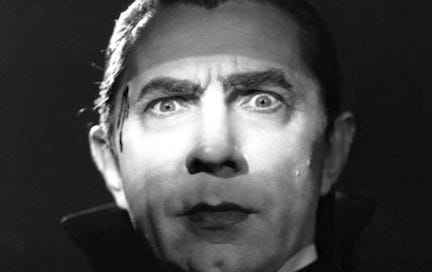




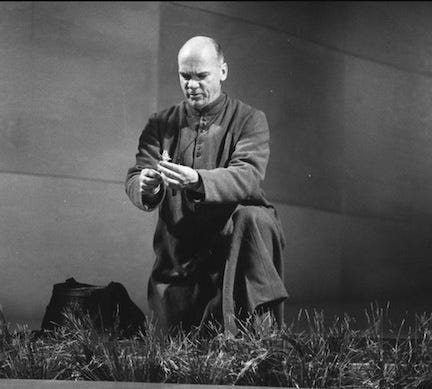

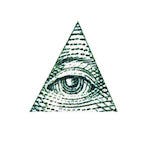

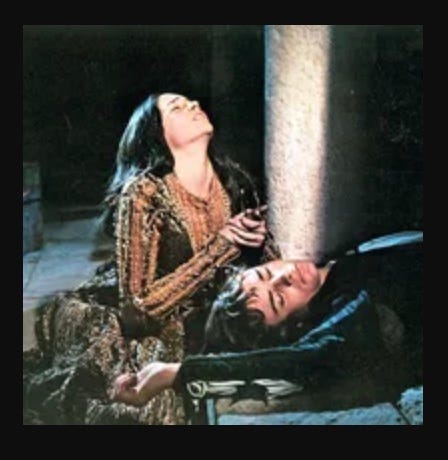
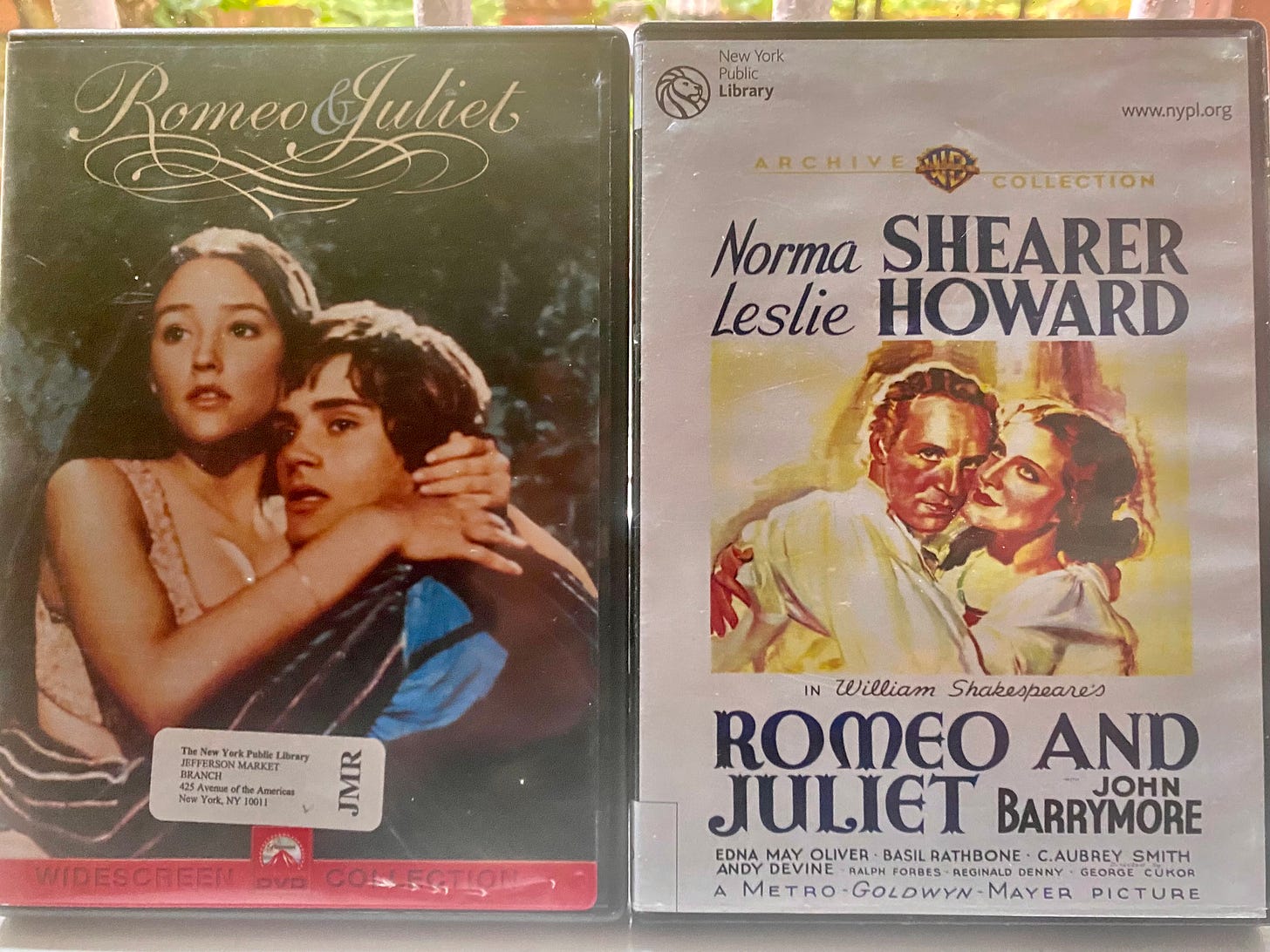



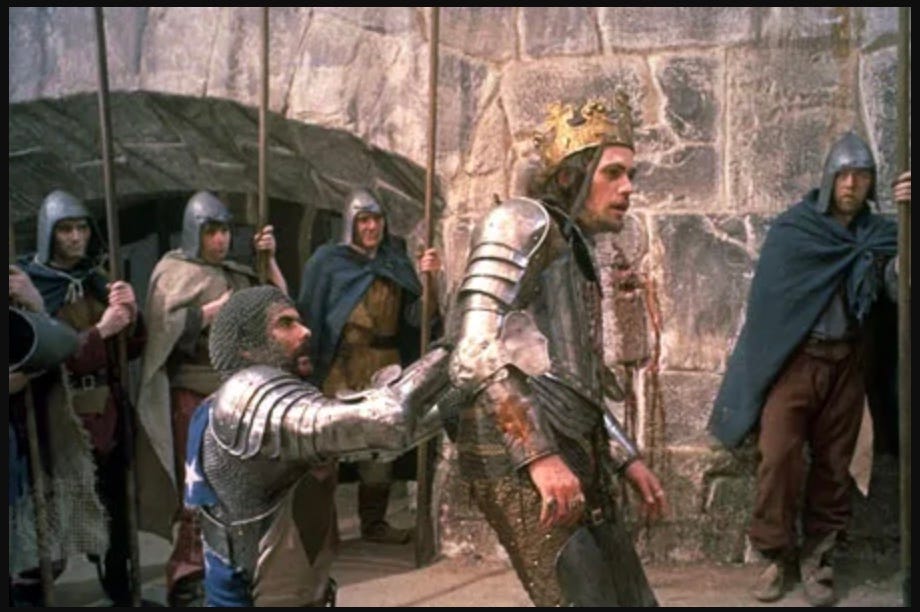
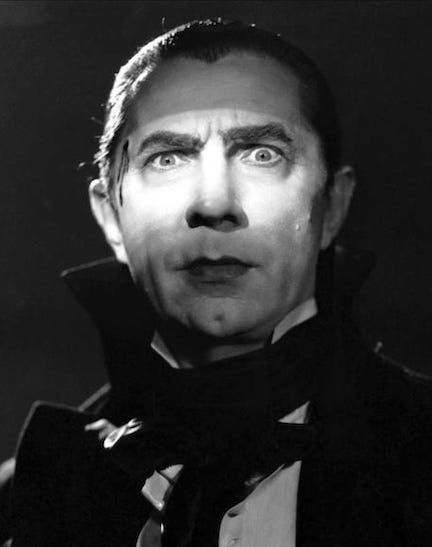
"We can safely put away any notions of some that Shakespeare secretly advocated Catholicism!"
This line is mostly familiar to me from Clare Asquith in 'Shadowplay' and how she constructed it is most interesting. Her central claim is that every time "Shakespeare" uses "high" or "fair" (or close synonyms thereof) he means Catholic and the inverse ("low" and "dark") means Protestant. Small problem: "low" and "dark" were commonly applied to anything an author wanted to look bad. It's nonsense. What Asquith really wanted was to find a way to give Stratford Will the university education he so obviously needed - so if he was a secret Catholic then, she argues apparently seriously, he was smuggled into Catholic-sympathising Oxford under an alias! That's how he learnt it all! Don't worry about the specific references to Cambridge.... or that the whole thing is a fantasy house of straw.
Is Clare Asquith just some random eccentric? No. Her mother is Viscountess Sidmouth. Her husband is Raymond Asquith, great-grandson of H.H. Asquith UK PM 1908-16. Quigley and Docherty/MacGregor have plenty to say about Asquith the PM. There are few men with more blood on their hands. Raymond Asquith was British Ambassador to the USSR in the 1980s - a "safe pair of hands" in situ for momentous events.
Clare Asquith isn't the only female Stratfordian writer with some interesting connections. Charlotte Stopes 'The Bacon/Shakespeare Question' is probably the worst slice of Strafordianism it's been my displeasure to read. It's like being locked in a room with Stanley Wells, Jonathan Bate and James Shapiro. The section where she tries to paint C16th Stratford as Florence-upon-Avon and Mary Arden as some sort of cross between Catherine De Medici and Jane Austen is unintentionally hilarious. Well, Stopes' daughter was no other than Mary Stopes, the insane eugenicist and Britain's answer to Margaret Sanger! Charlotte Stopes wrote as "C.C. Stopes" and CC=33.
I'm not going to rehash the evidence that Stratford Will was Catholic or Protestant. It's a classic fake binary. Authors like Asquith and Stopes will never admit (except perhaps very obliquely in code like "freethinker") that these are not the only two options - Gnostic, Luciferian, Pagan, Middle Eastern, even outright Satanism, these are all off the table in the way they're trying to shape the debate.
Thank you Contarini! Dare I send it to Pearce? 😬
OK I will! Thanks again!